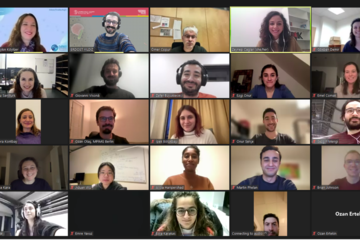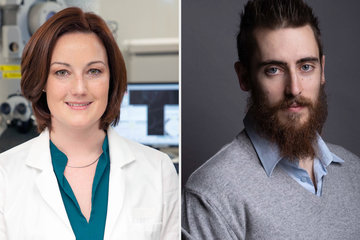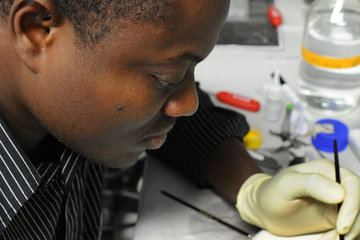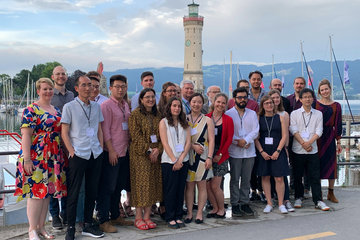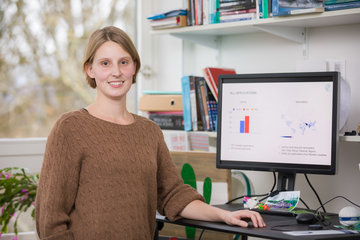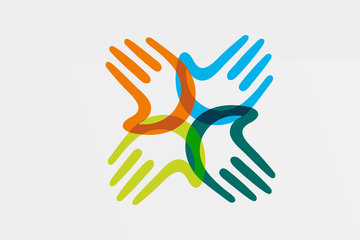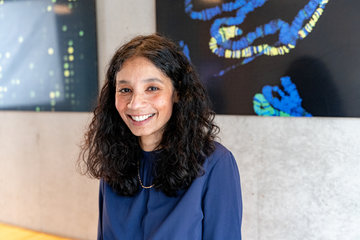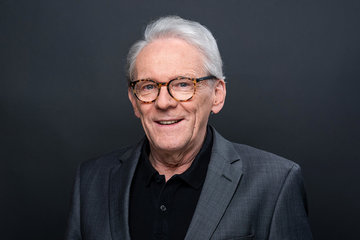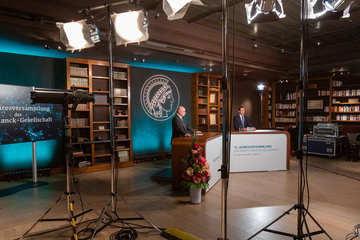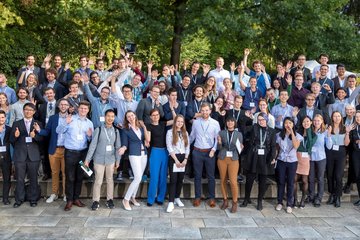Max Planck Schools expand network of Fellows
As of October 01, 2021 onwards, 120 Fellows reappointed and 14 newly appointed
134 scientists from German universities and research organizations have been appointed as “Fellows of the Max Planck Schools” by the President of the Max Planck Society, Martin Stratmann and the President of the German Rector’s Conference (HRK), Peter-André Alt. Amongst the highly distinguished Fellows are one Nobel laureate and 18 Leibniz award recipients.

The central goal of the Max Planck Schools is to recruit Germany’s leading scientists, the so-called “Fellows of the Max Planck Schools”, as supervisors, teachers, and mentors for the Max Planck Schools' doctoral program across local and organizational boundaries. “The attractiveness of the Schools for young people is that they can learn and work with top scientists in a research-oriented environment – regardless of whether these scientists are employed full-time at a university or a non-university research institution “, explains Jan-Michael Rost, Director at the Max Planck Institute for the Physics of Complex Systems and one of the two Deans of the Schools.
Together with Walter Rosenthal, President of the Friedrich Schiller University Jena and second Dean of the Schools, Rost has taken the lead in further developing the selection process for the Fellows. While the first generation of Fellows (2019 - 2021) still had to be nominated, scientists could now apply to become a Fellow themselves within the framework of an Open Call. "With the Open Call, we also want to reach those we have not yet had our eye on," says Rosenthal. A total of 163 scientists applied for the Open Call.
In addition, the position of Adjunct Fellows was introduced, who support the Schools on a voluntary basis in a variety of ways. "The position of Adjunct Fellows gives us the opportunity to attract such outstanding scientists to the Schools who currently do not have the time resources for full Fellow status. Or to integrate those who are still at the beginning of their careers but could rise to become the best in their respective fields" says Rosenthal, "Since it is precisely such high potentials who often provide valuable impetus, for example in terms of innovative teaching methods, and often have a completely different scientific and personal approach to the young doctoral researchers, we wanted to include them in the coming years," adds Rost.
With the innovations open call and Adjunct Fellows position, the Max Planck Schools are using the pilot phase launched in 2018 to continuously develop the concept behind the Schools - the pooling of excellence distributed throughout Germany to qualify a new generation of promising early-career scientists. This is also in line with the original idea of establishing a new and expandable doctoral program in future fields bottom-up from within the scientific community.
*********
The Max Planck Schools are a joint graduate program of currently 24 universities and more than 30 non-university research institutes. Ambitious and talented doctoral students are offered the opportunity to study in a research-focused and interdisciplinary manner, in close exchange with their supervisors who are leaders in their respective fields. Within the framework of this unique network, PhD students benefit from early access to a versatile and first-class research infrastructure, to innovative teaching formats and to renowned scientists in the research fields of Cognition, Matter to Life, and Photonics. Key partners playing a prominent role in the pilot phase are the Friedrich Alexander University Erlangen-Nuremberg, the Friedrich Schiller University Jena, the Georg August University Göttingen, the Heinrich Heine University Düsseldorf, the Humboldt University Berlin, the Karlsruhe Institute of Technology, the Technical University Munich, the Universities of Heidelberg and the University of Leipzig, the DWI Aachen, the Fraunhofer Society and the Max Planck Society. The Federal Ministry of Education and Research is funding the pilot phase with 45 million euros.


